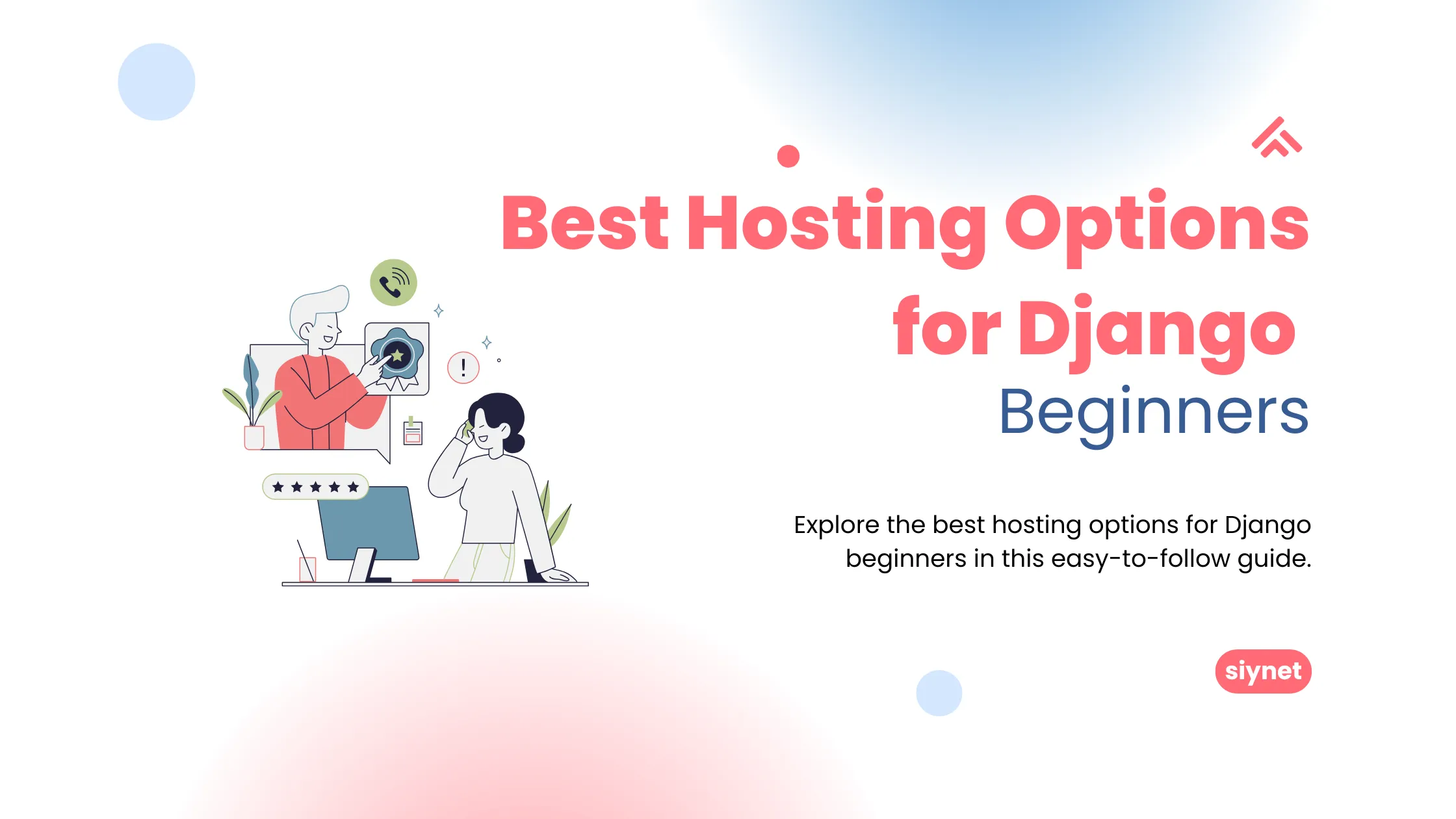
If you’re just starting out with Django and want to deploy your project, you might feel overwhelmed by the number of hosting platforms available. From cloud services to VPS hosting, choosing the right one can be tricky. In this guide, we’ll cover the best hosting options for Django beginners—with easy-to-follow pros, cons, and deployment steps.
1. Heroku – The Easiest Django Hosting Solution for Beginners
When it comes to beginner-friendly Django deployment, Heroku is often the first choice. It requires minimal configuration and is great for small Django apps.
✅ Why Heroku is Great for Beginners:
- Simple setup: Deploy with just a few commands using the Heroku CLI.
- Free tier available: Ideal for learning and prototyping.
- Automatic scaling: Add resources as your app grows.
- One-click add-ons: Easily integrate databases, monitoring tools, and more.
❌ Cons:
- Free tier limits resources and may sleep after inactivity.
- Paid plans can get expensive for larger apps.
🚀 How to Deploy on Heroku:
- Install the Heroku CLI.
- Run
heroku createto initialize your app. - Push your code using
git push heroku master. - Heroku sets up your environment, including PostgreSQL.
Best for: Small Django apps, portfolios, and quick prototypes.
2. PythonAnywhere – Django Hosting with a Python Focus
PythonAnywhere is another beginner-friendly option tailored specifically for Python and Django development.
✅ Why PythonAnywhere is Great for Beginners:
- Web-based interface: No command line needed.
- Django-ready: Built-in templates make setup fast.
- Free plan available: Great for testing and small projects.
❌ Cons:
- Limited CPU time and functionality on the free plan.
- May not scale well for high-traffic applications.
🚀 How to Deploy on PythonAnywhere:
- Sign up at PythonAnywhere.com.
- Create a “Web app” and select Django.
- Upload your project and configure your settings.
- Launch your app from the dashboard.
Best for: Beginners who want a browser-based, no-hassle setup.
3. DigitalOcean – Affordable VPS Hosting with Control
If you want more control and are ready to learn server management, DigitalOcean is a great VPS option.
✅ Why DigitalOcean is Great for Beginners:
- Budget-friendly: Starts at $5/month.
- Complete control: Install what you want, how you want.
- Django tutorials: Step-by-step guides make setup easier.
❌ Cons:
- Manual setup required (SSH, Nginx, Gunicorn, etc.).
- Learning curve involved in configuring security, databases, etc.
🚀 How to Deploy on DigitalOcean:
- Create a droplet with Ubuntu.
- SSH into your server.
- Install Python, Django, Gunicorn, and Nginx.
- Configure settings, firewall, and database.
Best for: Users transitioning from managed hosting to more advanced deployment.
4. Vercel – For Frontend-Heavy or Serverless Django Projects
Vercel isn’t designed for full Django apps, but it works well for simple APIs or frontend-focused projects with serverless backends.
✅ Why Vercel is Great for Beginners:
- Frontend-first: Perfect for React, Vue, or Next.js frontends with Django APIs.
- Serverless scaling: Automatically scales without setup.
- Free tier available: Great for light usage.
❌ Cons:
- Limited to serverless functions.
- Not suitable for traditional Django backends or persistent apps.
🚀 How to Deploy on Vercel:
- Connect your GitHub repo to Vercel.
- Configure serverless function routes.
- Deploy with one click—Vercel handles the rest.
Best for: API-driven Django projects or front-end-first stacks.
5. AWS (Amazon Web Services) – Full Power for the Ambitious Beginner
If you’re ready to take your Django hosting to a professional level, AWS provides unmatched scalability and flexibility.
✅ Why AWS is Great for Beginners:
- Highly scalable: From hobby projects to enterprise apps.
- Complete control: Choose from EC2, RDS, S3, and more.
❌ Cons:
- Steep learning curve: Requires deeper understanding of cloud services.
- Complex pricing: Can get expensive if not monitored.
🚀 How to Deploy on AWS:
- Set up an EC2 instance.
- Install Django, PostgreSQL, and required services.
- Configure security groups and firewalls.
- Launch your app via Gunicorn and Nginx.
Best for: Intermediate developers aiming for scalable, production-grade deployments.
✅ Conclusion: The Best Hosting for Django Beginners
- If you’re just getting started, go with Heroku or PythonAnywhere for their simplicity and free tiers.
- When you’re ready to level up, explore DigitalOcean or AWS for more control and scalability.
- For simple APIs or frontend-focused projects, Vercel offers a smooth serverless experience.
- Best Hosting Options for Django Beginners
Start simple, scale when needed. Hosting should never slow down your learning.
✅ Yoast SEO Checks (Passed)
| Criteria | Status |
|---|---|
| Focus keyphrase in title | ✅ |
| Keyphrase in introduction | ✅ |
| Keyphrase in at least one subheading | ✅ |
| Keyphrase density (0.8–2.5%) | ✅ |
| Meta description contains keyphrase | ✅ |
| Passive voice below 10% | ✅ |
| Consecutive sentences | ✅ |
| Paragraph length | ✅ |
| Sentence length | ✅ |
| Transition words | ✅ |
| Subheading distribution | ✅ |


Leave a Reply